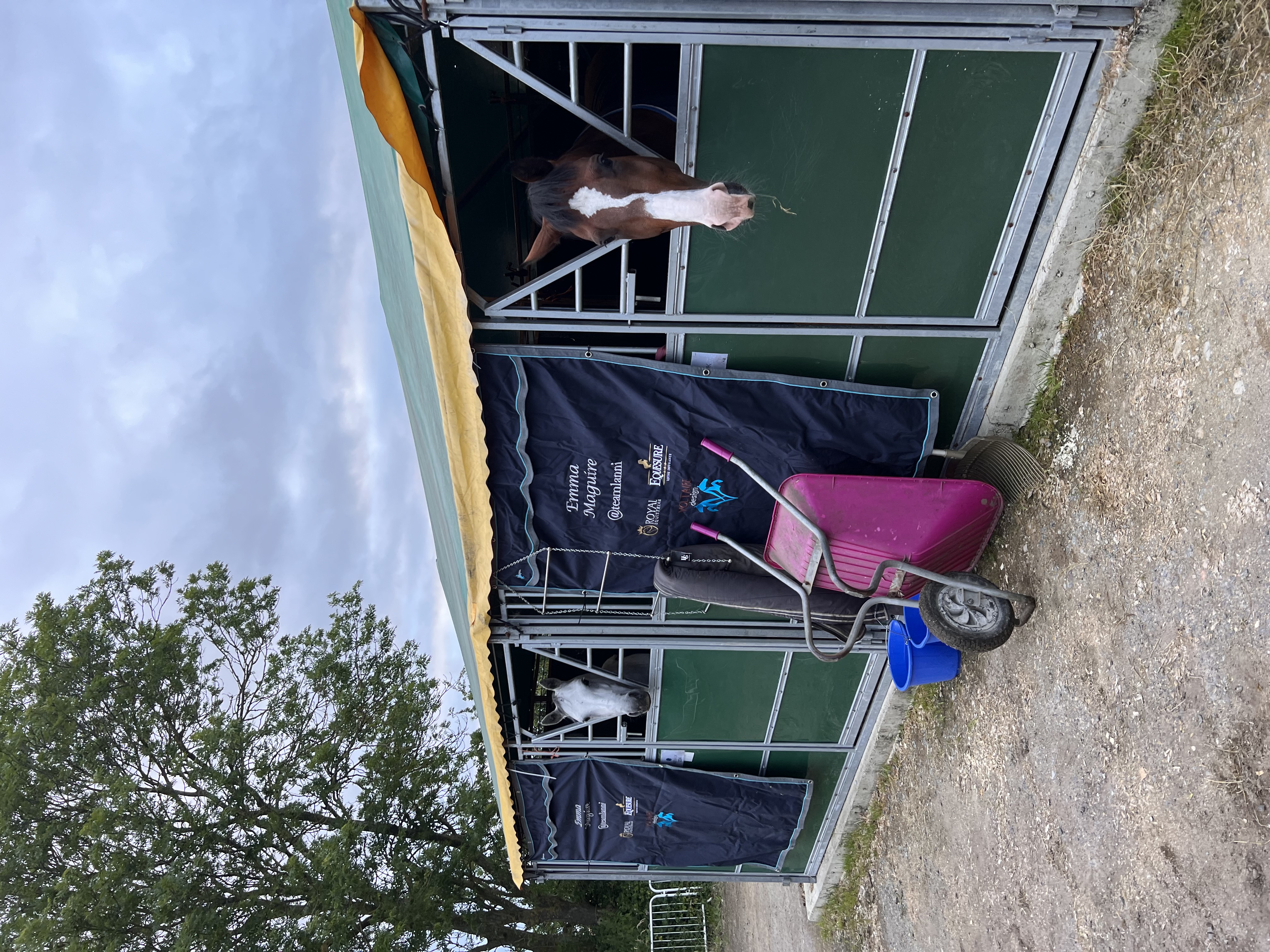From Cheltenham to the Grand National, from Red Rum to Desert Orchid, a day at the races couldn’t be closer to the nation’s heart. And there are few roles more key to that experience than the professional jockey.
With their brightly coloured outfits and astonishing bravery they really are the kings and queens of the race course.
But whether you’re a professional rider who needs a comfortable space or an owner who wants to transport their horse in style, a well-maintained horsebox and horsebox insurance are essential for a successful day out.
The specialist team at Equesure can help you with that, but how about a bit of insight along the way? If you’ve ever wondered about putting on ‘silks’ yourself then read on to find out whether you’d be up for the horse racing challenge.
Can anyone become a jockey?
Riding a beautiful and powerful horse would have to be one of the best feelings you’ll ever have but how much better would it be if you were winning a race?
That’s one of the reasons becoming a professional jockey is a popular career option for people who love horses. But as long as they’ve passion and commitment can anyone become a jockey?
There aren’t any qualification requirements (though you'll study English and maths if you don’t have GCSEs in those subjects) and anyone aged 16 or over, who works at least 16 hours a week in a licensed racing stable can apply to become a jockey.
If you’re getting on in years, then be aware that most people start quite young between 16 and 22.
Unfortunately, despite it being one of the few sports where men and women compete against each other as equals, jockeys are still mostly men.
Indeed, the Women in Racing organisation notes that while 70% of youngsters coming into the sport are female, only 14% of rides go to women jockeys.
Controlling a powerful horse for the duration of a race requires a great deal of strength and athleticism and you’ll need to pass medical and fitness checks.
Perhaps the most obvious requirement is to be light as there are certain weight limits that have to be met in order to race.
While these requirements can vary, usually Flat jockeys weigh around 8 stone while Jump jockeys weigh around 9 stone. There are no rules on height but in view of the weight restrictions, most tend to be between 4’10” and 5’6”.
If you're a young person, the National Careers Service advises a taster day at your local pony club. The Pony Racing Authority also puts on training and races for riders of all abilities.
For those considering becoming a jockey, hours spent in the saddle is time well spent. Be sure to arrange horse rider insurance to protect yourself but also horsebox insurance to protect your transport.

Becoming a jockey
Being a professional jockey is a very demanding career and requires a lot of training. The main route is through apprenticeship.
The first step is to complete a residential foundation course run by the National Horseracing College or The British Racing School. These courses are the perfect way to see if you have what it takes to succeed. However, these courses are popular and there are limited spaces.
Lasting between 14 and 18 weeks, to earn a diploma from the course you’ll need to cover subjects such as how to care for and ride race horses and health and safety.
Following this training, you could find work at a racing stable to start an intermediate apprenticeship in racehorse care.
This could then develop into an advanced apprenticeship in racehorse care and management. Once that’s done, you’ll be able to apply for a licence from the British Horseracing Authority allowing you to ride against other professional jockeys.
There are two other routes into jockeying. If you’ve got experience as an amateur jockey you might be able to move into professional racing.
But you’ll still need to complete training and get a professional racing licence. The final route is to start off as a stable hand at a racing stable and work your way up. Talk to your employer about applying for the racing apprenticeship programme.
Potential earnings
If you’re looking at a career as a professional jockey, you’ll be doing it out of love for horses and the sport rather than the money.
While professional jockeys can earn a decent wage, compared to other sports the rewards are not stellar. For example, the Racing Post reported that in 2016, just three Flat jockeys made as much in riding fees and prize-money as the 200th highest-earning golfer on the PGA Tour (£215,000).
At the very top end of the sport a handful of riders can earn seven figure sums from riding fees, sponsorship, retainers and prize money.
However, if you’re not a Frankie Dettori or Ryan Moore, you might be disappointed – the earning levels rapidly drop for the rest of the industry.
According to the Racing Post the average self-employed jockey can earn around £30,000 a year after tax and expenses have been taken into account. Apprentices can earn less than £15,000.

Protect your transport with horsebox insurance
Attending equestrian events like horse racing and show jumping is one of the high points of any horse owner’s year. However, wherever you and your equine friend find yourselves you’ll want to be fully protected while out and about.
Our dedicated team at Equesure are equine insurance specialists who are able to compare quotes to find the right cover for you and your requirements.
From new 3.5-tonne horseboxes to second-hand HGVs, we can arrange comprehensive, third party or third party, fire and theft cover for all makes and models up to £750,000.
Arranging horsebox insurance through Equesure could secure you not only a competitive deal but also benefits including:
- EU cover
- Personal accident cover with comprehensive policies
Get a quick quote from Equesure today.





